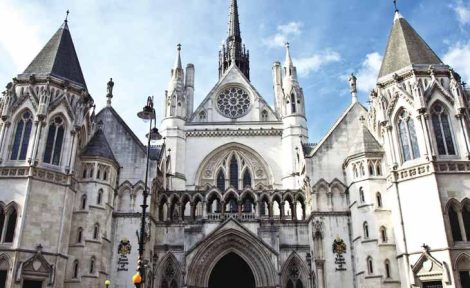BLOG: ‘Leasehold not perfect but to treat it as beyond saving is misguided’
Senior leasehold practitioner calls out those say leasehold is 'fleecehold' and who claim commonhold is the only way forward for the sector.

The Leasehold and Freehold Reform Act 2024, rushed through parliament during the pre-election wash-up, marked a significant – though incomplete – shift in the power balance between freeholders and leaseholders.
Now, all eyes are on the imminent Leasehold and Commonhold Reform Bill, which could mark an even more fundamental turning point by making commonhold the default tenure for new-build flats.
At the heart of this lies a valid concern: leaseholders should not be exposed to opaque service charges, onerous ground rents or mismanagement.
But, as the debate has unfolded it has become increasingly emotional and worryingly unbalanced.
The dominant narrative portrays leasehold as a “feudal” relic, a system riddled with abuses and stacked against ordinary homeowners and the term ‘fleecehold’ has entered common usage.
But this risks ignoring the voices of professionals, lenders, managing agents and responsible freeholders – and with them, the practicalities that underpin the UK’s existing flat ownership model.
Headline grabbing
When it comes to property, the most extreme stories tend to grab the headlines including spiralling service charges, insurance commission scandals and freeholders who behave unreasonably with lease extension and enfranchisement claims.
These stories matter. But they are far from typical. Most leasehold relationships function as intended – imperfect, yes, but workable.
Leasehold – particularly when underpinned by modern, clearly drafted leases and good governance – can and does work. What it needs is not abolition, but improvement: greater transparency, tighter regulation of managing agents, and clearer guidance for homeowners.
We need to see greater resources and information available, particularly for leaseholders, to help understand the current system.
High court
Rushed legislation carries risk. The Leasehold and Freehold Reform Act 2024 is already the subject of a Human Rights challenges.
John Lyon’s Charity, Cadogan Estates and others have brought High Court proceedings arguing that aspects of the Act, including the removal of marriage value and the capping of ground rents (for premiums), amount to an infringement of their rights to enjoy their property as set out in the European Convention of Human Rights.
Meanwhile, professional advisers are fielding more enquiries from clients unsure of how to proceed with leasehold sales or enfranchisement claims, amid ongoing legal uncertainty.
In some cases, leaseholders themselves are unaware of their obligations – for example, the need for Section 20 consultations for qualifying works, or the roles and responsibilities associated with share of freehold.
Misunderstandings are common, and under-resourced conveyancing practices often fail to fill the gap.
Commonhold is not immune to these issues. In theory, it offers a democratic alternative to leasehold: no ground rents, no external landlord. But in practice, it remains untested.
Only a handful of commonholds have ever been created in England and Wales since its legal introduction in 2002.
Lenders are cautious due to the lack of a proven management and governance framework and concerns over their security especially since there is currently no right to forfeit a commonhold unit for a breach. Scotland’s experience has seen significant challenges.
Leasehold is far from perfect. But to treat it as beyond saving – or to present commonhold as a panacea – is misguided
Leasehold is far from perfect. But to treat it as beyond saving – or to present commonhold as a panacea – is misguided. There are practical, incremental ways to reform leasehold that reflect how people actually live and buy property.
The recent simplification of Right to Manage, for instance, makes it easier and cheaper for leaseholders to take control of their buildings.
Clearer lease drafting, greater education at the point of sale and better regulation of managing agents would do more to improve outcomes than a wholesale switch to an untested system.
In time, commonhold may evolve to become a more viable option. But that is no reason to dismiss the system currently in use by millions.
It is natural, at moments of major reform, to paint the status quo in the worst possible light. But the risk of such distortion is that the legislation it inspires is itself distorted.
Unfortunately, law is littered with well-meaning policies that falter in practice. The emerging Leasehold and Commonhold Reform Bill must not become the next.
Balanced future
If we want reform that works, we must restore balance to the debate. That means recognising the flaws in leasehold – but also the strengths.
It means listening to leaseholders and freeholders, to the legal and lending professions as well as campaigners and consumer groups. And it means avoiding the lure of simple solutions to complex problems.
There needs to be a greater focus on educating the consumers in the sector. The leasehold system is here for now and a better understanding is essential.
Author bio
Shabnam Ali-Khan is a Partner at Russell-Cooke and a member of ALEP.











Absolutely agree. Leasehold works, and I’m sure works better in many instances than commonhold would, particularly if there is an individual in the block of flats who can’t afford or refuses to pay an element of the costs for maintenance. The problem with marriage values is that its opinion orientated. 30 years ago a lease as low as 50 years was considered mortgageable by most lenders. It has increased now to at least 80 years purely through advice. Nothing else has changed. The government needs to set the limit on mortgageable lease terms not insurance companies. Ground rents MUST be limited on ALL flats no matter their age to £250 per annum. If a landlord suggests otherwise they are the problem. Ground rent is for nothing. Pure profit and the high rents combined with rent reviews in leases were a rip off so landlords can thank themselves for any losses sustained there. Lease extension should have a simple table of cost for a 900 year extension without changing ground rents (assuming the above cap is put on the rent) that everyone has to adhere to and is issued by the government index linked to inflation. Once notice is served the extension must be executed within 28 days or the landlord loses their right to claim costs. Legal costs for the extension work should be minimal as it is literally just varying the date in the current lease and registering it at land registry. Perhaps even put the onus on the landlord to carry out this work for a fixed fee. Managing agents/freeholders must be given time limits and cost limits for production of LPE1’s. Every block should produce a basic format LPE1 annually with simple boxes to be filled out for individual flats upon request when selling. All LPE1’s should be valid for one year from production unless any emergency work crops up which can then be added as an addendum.
These are basic, simple and cost reducing changes that will make life better for all leaseholders without harming freeholders beyond their own greed. Many freeholders are absolutely excellent so please don’t tar all with the same brush! Having been selling homes for 43 years I’ve seen leaseholds change for the better and the worse. Rectification is simple just don’t let the Law Society be in charge of it as it’s a cash cow for them. Government officials to deal with it but they cannot have a vested interest. IE don’t let big landlords regulate big landlords!!